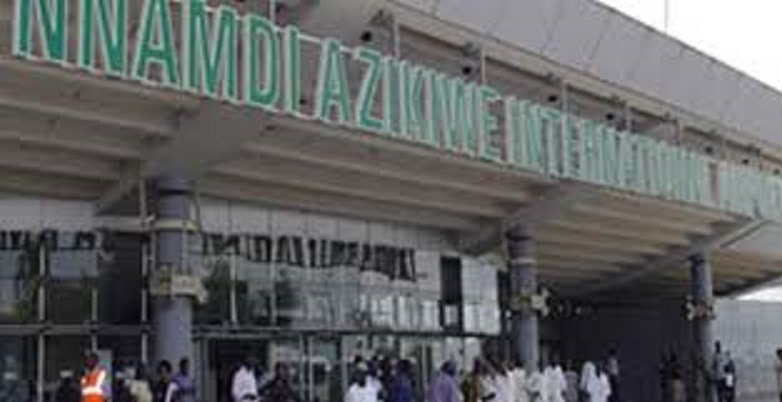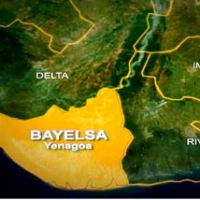Aviation
Why Nigeria’s Airlines Are Facing Severe Flight Delays – NCAA
The Nigeria Civil Aviation Authority (NCAA) has attributed the persistent flight delays and cancellations across the country to a severe shortage of aircraft among local airlines, highlighting the industry’s struggle to meet growing passenger demand.
Michael Achimugu, the NCAA’s Director of Public Affairs and Consumer Protection, made this revelation during an event organized by the agency in Abuja on Wednesday.
READ MORE: BREAKING: President Tinubu Sacks Five Ministers
He noted that the lack of adequate capacity within Nigerian airlines is the primary driver behind the ongoing disruptions.
“In Nigeria, we have a capacity problem. We simply do not have enough aircraft to fly people around the country,” Achimugu said.
“The Honourable Minister has stated this. The most important solution is what the minister has facilitated with the signing of the Cape Town Convention, allowing more planes to enter the country.”
This comment comes amid increasing frustration from passengers over widespread flight delays and cancellations, which have become a regular occurrence in Nigeria’s aviation sector.
Achimugu confirmed that the recent signing of the Cape Town Convention (CTC) practice direction by the Minister of Aviation and Aerospace Development, Festus Keyamo, is a key step towards addressing the capacity issue.
The agreement will allow domestic airlines to access aircraft through dry lease arrangements, potentially increasing the number of operational planes in the country.
“This will help alleviate the shortage and improve service delivery,” Achimugu stated, adding that capacity constraints frequently result in delays that cascade across multiple routes throughout the day.
Additionally, the NCAA official disclosed that the federal government is making plans to recalibrate airports nationwide, which would further reduce operational disruptions.
These measures come at a time when Nigeria’s aviation industry has achieved an improved global standing.
Minister Keyamo recently announced that the country is no longer blacklisted internationally, with Nigeria’s aviation safety rating rising to 75.5 percent.
This improvement is expected to boost confidence in the sector as efforts to resolve operational challenges continue.
Aviation
Accra Bound Aircraft Loses Engine Mid-Air After Departing NAIA, Abuja

An Abuja-Accra flight experienced technical difficulties mid-air on Friday, forcing it to return to Abuja, shortly after departure.
The Nigerian Safety Investigation Board (NSIB) made the disclosure in a statement, adding that it has launched investigation into what it described as a serious accident.
Director, Public Affairs and Family Assistance, NSIB, Bimbo Olawumi Oladeji stated that preliminary investigations revealed the aircraft experienced an engine number two indication issue.
ALSO READ: BREAKING: Kyari Oversees NNPC Ltd’s Transparent Recruitment Aptitude Test
It was gathered that the aircraft, with registration number 5NKAL which was operating a flight from the Nnamdi Azikiwe Airport, Abuja (DNAA), to Kotoka International Airport, Accra (DGAA).
She explained that four persons were onboard when the incident occurred. The crew immediately requested for a diversion back to Abuja due to the engine indication.
Oladeji added that the crew managed to safely land the aircraft at Abuja Airport at 18:16 UTC.
There were no injuries reported, and all individuals on board are safe.
Aviation
FG Secures 12 Pre-Owned Alpha Jets to Bolster Nigeria’s Air Power
Nigeria has acquired 12 pre-owned Alpha Jets from the French Air Force as part of efforts to enhance the operational capacity of the Nigerian Air Force (NAF).
The deal, facilitated through SOFEMA, a French military and aeronautics company, was announced by Olusegun Dada, Special Assistant to President Bola Tinubu on via X on Thursday.
He said, “All the 12 aircraft are ready for shipping.”
The Alpha Jet, a product of Franco-German collaboration, is a versatile military aircraft designed for light attack and advanced training missions.
READ MORE: JUST IN: FG Battles Against Seizure Of Presidential Jets In France
Equipped to carry bombs, rockets, and missiles, the aircraft also features a gun pod for close air support.
The NAF already operates 11 Alpha Jets, but this latest procurement signals a significant boost to its fleet.
Dada also confirmed that the Air Force is expecting 24 M-346FA light attack aircraft, ordered during the administration of former President Muhammadu Buhari.
The first batch of these Italian-made aircraft is expected to arrive early next year.
Air Chief Marshal Hasan Abubakar, the Chief of Air Staff, described the acquisitions as a testament to President Tinubu’s commitment to bolstering the armed forces.
“This renewal of our aircraft fleet reflects the government’s commitment to ensuring the safety and security of Nigerians,” Abubakar said.
The announcement comes on the heels of President Tinubu’s three-day state visit to France, where he met with French President Emmanuel Macron.
The visit, which took place from November 27 to November 30, highlighted deepening ties between the two nations.
To ensure the sustainability of its expanding fleet, the Air Force has proposed establishing a local maintenance hub.
Speaking in October, Abubakar noted that six units of the M-346FA aircraft were already in production, with the initial batch of three expected to be delivered in early 2025. The full fleet is projected to arrive by 2026.
“These developments underscore the importance of creating a domestic support system for the long-term upkeep of our aircraft,” Abubakar added.
Aviation
Festive Season: Aero Contractors Slashes Ticket Prices To N80,000
As the holiday season draws near, Aero Contractors has introduced a minimum ticket price of N80,000 for all local flights.
The move, which will last until January 2024, aims to ease the financial burden on Nigerians amid the high cost of living.
Ado Sanusi, Managing Director of Aero Contractors, made the announcement on Tuesday during a press briefing, describing the fare reduction as a gesture to help Nigerians celebrate Christmas and the New Year without the stress of steep ticket prices.
READ MORE: Bobrisky Defends Egungun of Lagos Amid Viral Video Scandal
Sanusi said, “We understand the economic hardship Nigerians are facing, especially with high ticket prices, and we know the holiday season is nearby.
“In the spirit of Christmas, Aero Contractors has introduced what we call pocket-friendly Christmas prices. These fares, starting at N80,000, will apply to all our destinations, allowing Nigerians to travel without excessive costs.”
As of Tuesday afternoon, an economy class ticket from Lagos to Abuja was priced at N99,643, while business class tickets were being sold for N189,167.
Sanusi further explained that the initiative was designed to make it easier for families to reunite during the holidays.
“This is a way for us, as an organization with a long history of serving Nigerians, to give back to our loyal customers. We want to make it possible for families to meet their loved ones during this festive season without worrying about exorbitant travel costs,” he added.
























